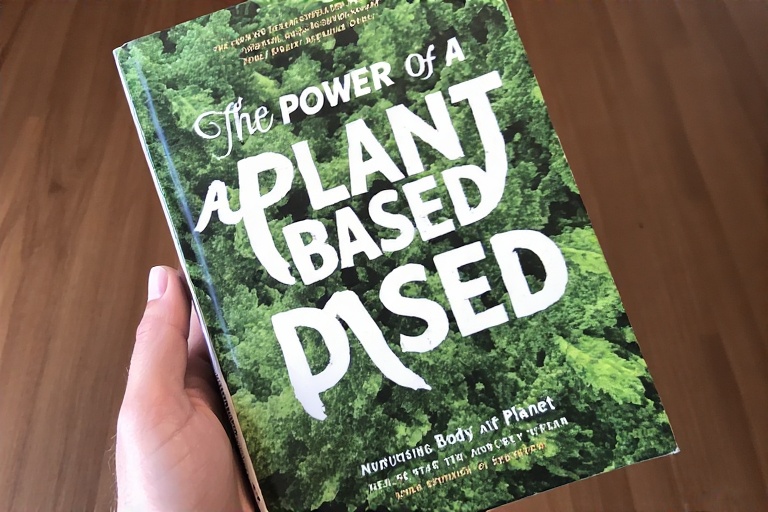
Why Choosing Organic Matters: Health, Environment
Onethink
- 0
The popularity of organic living has surged globally in recent years — and for good reason. Organic foods and products not only reduce exposure to harmful chemicals but also promote sustainability and healthier ecosystems. Whether you’re planning meals at home or preparing for travel — such as learning about the Cambodia Visa on Arrival — understanding the value of organic choices can significantly enhance your health and lifestyle.
What Does “Organic” Really Mean?
The term “organic” refers to the way agricultural products are grown and processed. In general, organic crops are grown without synthetic pesticides, herbicides, or fertilizers. Organic livestock is raised without antibiotics or growth hormones and is provided with organic feed and access to the outdoors. Certification agencies in many countries verify organic farms and processing facilities to ensure they meet strict organic standards.
Health Benefits of Organic Food
1. Reduced Exposure to Chemicals
Conventional farming relies heavily on synthetic chemicals to protect crops and boost yield. While these substances are regulated, long-term exposure can still pose health risks. Organic produce is grown without these synthetic inputs, which significantly reduces your chemical intake.
2. More Nutrient-Dense
Some studies suggest that organic produce may contain higher levels of certain nutrients, including antioxidants, compared to their non-organic counterparts. These nutrients play a key role in supporting the immune system, preventing chronic diseases, and promoting overall well-being.
3. Fewer Additives and Preservatives
Organic packaged foods are less likely to contain artificial preservatives, colors, or flavors. This makes it easier to avoid harmful food additives that are often found in processed foods.
Environmental Advantages of Organic Farming
Organic farming is not just a health-conscious decision — it’s also an environmentally responsible one.
1. Healthier Soil and Water
Organic practices improve soil health by rotating crops, using compost, and avoiding chemical fertilizers. This enhances biodiversity and prevents harmful runoff into rivers and lakes.
2. Reduced Greenhouse Gas Emissions
Sustainable farming practices in organic agriculture can lower emissions associated with synthetic fertilizer production and use. Plus, organically managed soil captures more carbon.
3. Wildlife Protection
Avoiding toxic pesticides helps preserve local wildlife, including pollinators like bees and butterflies that are essential to a healthy ecosystem.
Organic Living and Conscious Consumption
Choosing organic isn’t limited to food. Organic cotton, skincare, and home cleaning products are also free from harsh chemicals. Making mindful choices in all areas of life contributes to a more sustainable and ethical world.
Whether you’re buying groceries or applying for a visa, paying attention to detail matters. For instance, overlooking critical steps in your travel plans — such as the CAMBODIA VISA MISTAKES commonly made during travel preparations — can be as disruptive as neglecting what’s in your food.
Traveling with Organic in Mind
If you’re heading overseas — say, exploring Southeast Asia and interested in Cambodian culture and cuisine — it’s still possible to maintain organic habits. Start by researching the availability of organic options in your destination. Many larger cities now have health food stores and farmer’s markets.
When entering a new country, always make sure you’re well-prepared with documentation. If you’re arriving without a pre-approved visa, the Cambodia Visa on Arrival process is an option — but understanding the requirements ahead of time can help you avoid delays, especially if you’re carrying food or natural products that may be subject to customs checks.
Tips for Going Organic on a Budget
Some consumers hesitate to go organic due to higher prices. However, there are several strategies to make it affordable:
- Buy in bulk for items like grains, beans, and spices.
- Shop seasonal produce to take advantage of lower prices and fresher options.
- Prioritize your purchases by focusing on the “Dirty Dozen” — the most pesticide-laden fruits and vegetables — and go organic for those specifically.
- Grow your own herbs or vegetables if you have space at home.
Final Thoughts
Living organically is a lifestyle choice that benefits your health, the environment, and the global community. As with all conscious decisions, it requires a bit of planning — whether you’re grocery shopping, choosing skincare, or preparing for travel. Just like avoiding CAMBODIA VISA MISTAKES, making the right organic choices involves staying informed and intentional. Embrace organic living to nourish not just your body, but also the world around you.


